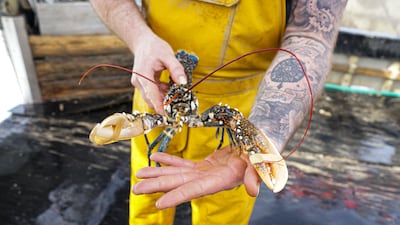Lobsters and octopuses can feel pain and should be given legal protection from suffering, an influential UK animal rights pressure group has said as the country prepares to adopt new provisions under animal welfare legislation.
The Conservative Animal Welfare Foundation wants the British government to recognise some invertebrates as sentient. A draft law going through parliament currently recognises the rights of vertebrates but reports state ministers are also planning to adopt amendment on invertebrates.
“We also know that crustaceans have the capacity to suffer and scientific evidence shows it is likely that crabs and lobsters feel pain,” the campaign said in its latest push for a wider legal shake-up.
“Crustaceans should be included in the new legislation to bring in new laws on animal sentience in the UK.
“If fish are part of our food diets, it’s important to remember that the majority of people believe that the welfare of fish should be safeguarded to the same extent as other animals farmed for food.”
A bill going through Parliament recognises that fish and other vertebrates feel pain and should be protected where possible from suffering.
Cawf says some invertebrates are highly intelligent and should be given similar protection.
Cawf, which has the Prime Minister’s wife Carrie Johnson and Environment Minister Lord Goldsmith as patrons, is pushing for the protection of invertebrates.
A report by the animal rights group found the UK fishing fleet lands more than 420 million cephalopods and crustaceans each year.
The animals are discriminated against in legislation because their “neurological architecture differs from our own”, the report said.
“Common arguments against crustacean and cephalopod sentience focus on distinctions between these animals’ anatomy and human anatomy. However, this anthropocentric view fails to capture what it means for an animal to be sentient.
“Crustaceans and cephalopods undoubtedly experience the world in extremely different ways to ourselves. What matters, though, is whether that experience entails conscious experience of pleasure and pain.
“We believe that the evidence is sufficient to show that these animals do experience pleasure and pain,” the report said.
If passed, the animal sentience bill would mean government policy must take into account that vertebrate animals can experience feelings including pain or joy.


